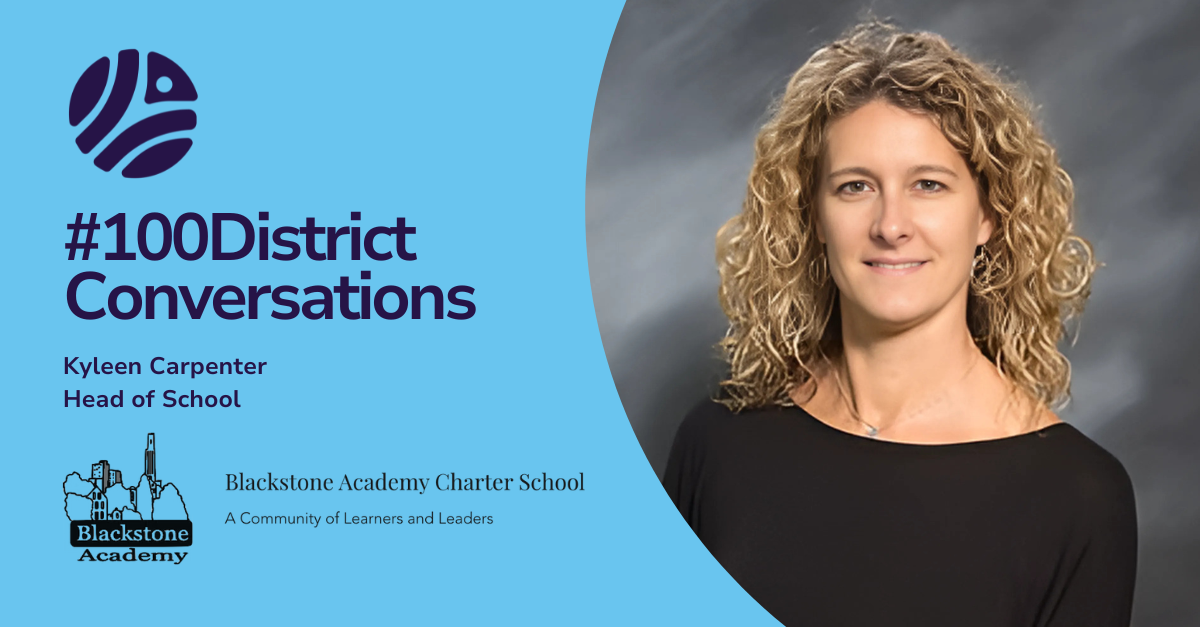#51 Kyleen Carpenter

Next 50 conversations here we come!
First up at #51 is Kyleen Carpenter, Head of School at Blackstone Academy Charter School. If you are leading competency education or project-based learning efforts, then this post will be particularly valuable. This was a seven year process that persevered through COVID and is now bearing incredible fruit for teachers and students!
"We're incredibly proud of our 7-year transition from a more traditional high school to a proficiency-based system. This was a significant undertaking supported by multiple Barr Foundation grants, including one grant that allowed us to hire a technical provider from Great Schools Partnership named Courtney Jacobs.
The initial funding was a design thinking grant, open-ended in its approach: 'How can you do high school better and what works for your kids?' This led to the full implementation of Project-Based Learning across the school, accompanied by redesigned transcripts and report cards. This exciting transition involved significant reinforcement of the 'why' – codifying the essential skills we aim for our students to master.
The ongoing work around proficiency is largely driven by our Professional Learning Groups (PLGs). Our PLGs are not simply common planning time; they're dedicated to deep conversations about our curriculum – what and why we teach. They focus on aligning with standards and integrating our Blackstone Habits of Mind. The co-design and planning sessions for PLGs identify broader school-wide issues for consideration, inform our summer PD and future directions, and foster shared leadership of key initiatives.
Courtney helped us design our PLG model and co-facilitates our PLG leadership model with one of our National Board Certified educators, Tasche Bryant. We have a total of 5 PLGs that operate departmentally and address discipline-specific interests, with the lead facilitator role for each PLG rotating annually. Courtney and Tasche meet regularly with all PLG facilitators in the building, which helps our structure stay unified in its approach to support our instructional program, yet allows each PLG to tackle its specific content-related needs. We also have a performance-based PLG which contains teachers from 3 different departments: world language, PE, and arts. PLGs often include students in discussions about the effectiveness of assignments and assessments for learners at different proficiency levels.
The technical aspects of this shift were also substantial, requiring extensive work to align our LMS with our proficiency-based model. We’re still refining how we measure the effectiveness of our rubrics and continue to work on vertical and horizontal alignment across our curriculum. However, the student perspective has been incredibly validating, with students articulating their mastery of skills and understanding how to progress on the rubrics.
From an adult staff perspective, we’re using AI in various ways. We've used it to generate SAT style questions more directly related to our classroom content, contextualizing them around the books students are reading. While staff often use AI as a starting point, they consistently modify the output. We are still navigating teacher concerns about appropriate student use of AI."
If you're a district leader or know of a district leader who should be featured in the #100DistrictConversations initiative, please use this nomination form.
